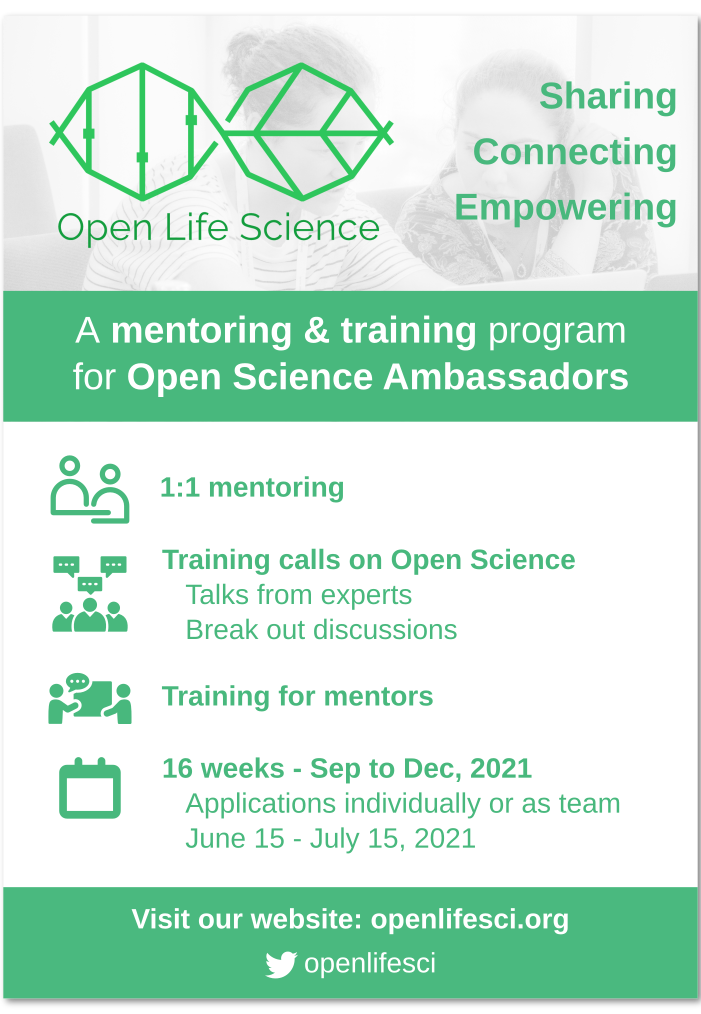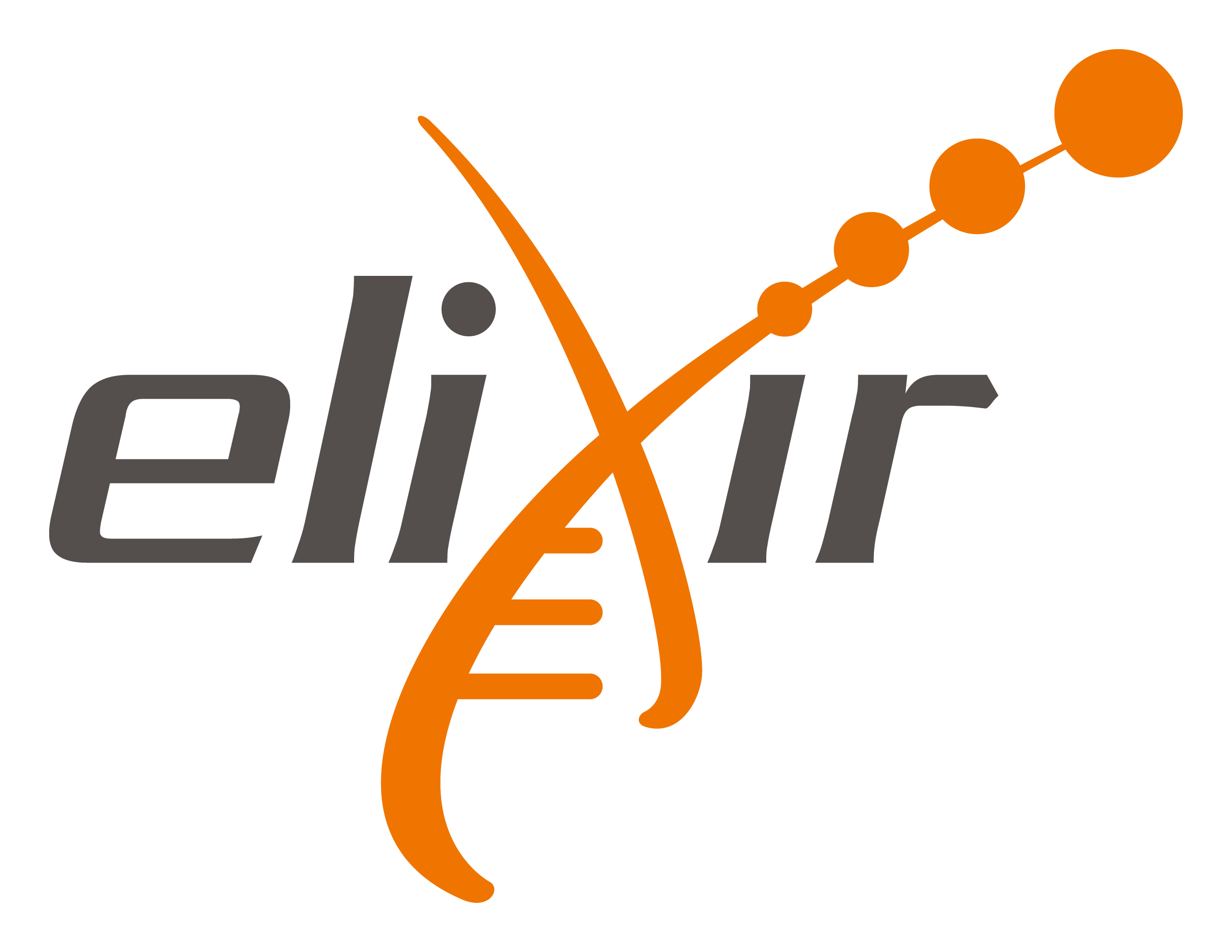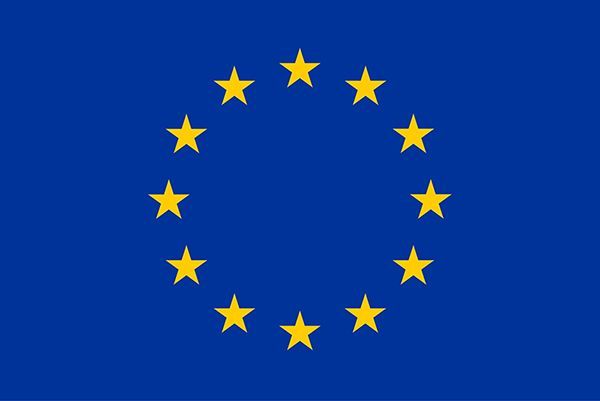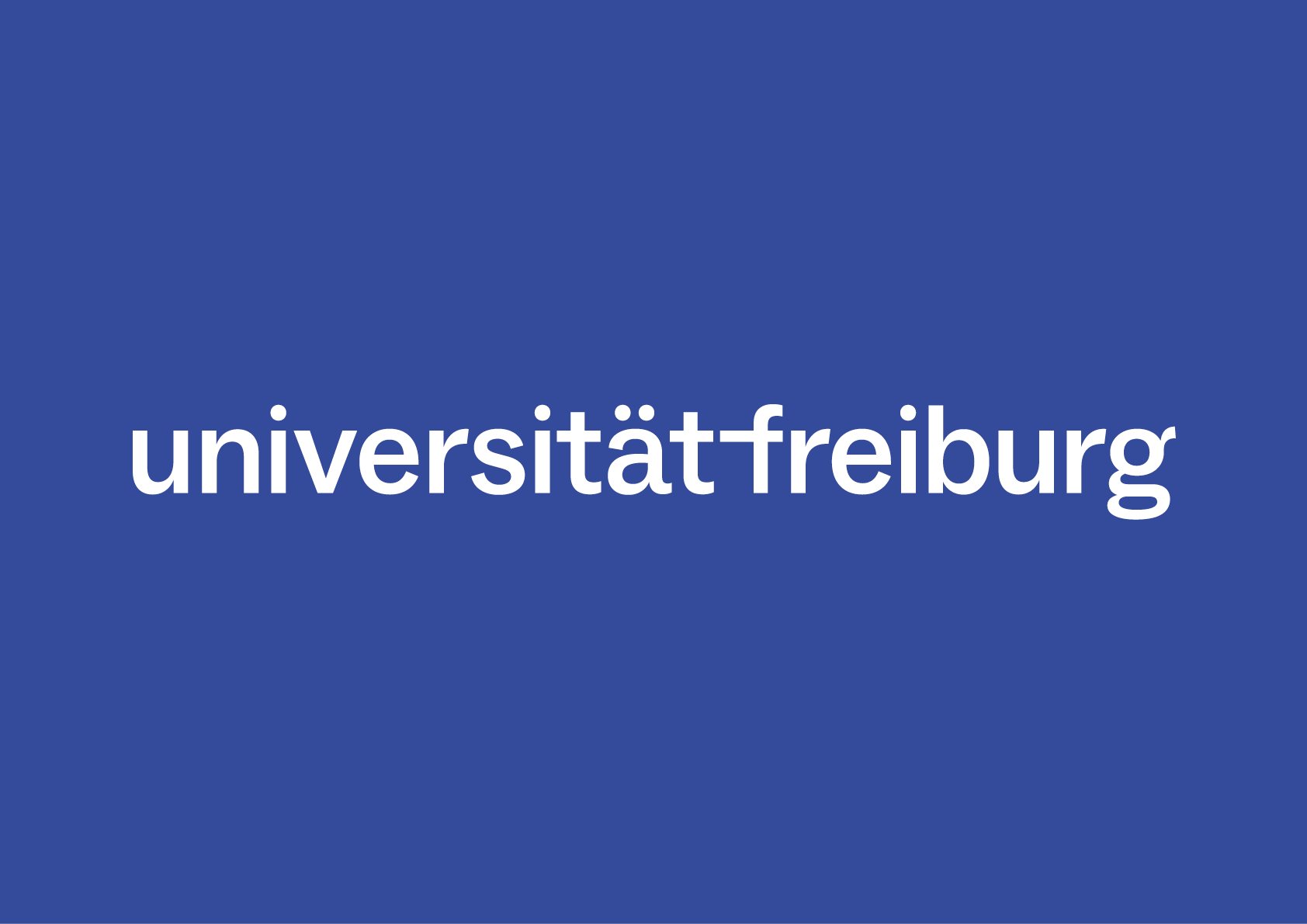Open Life Science program & the Galaxy community: involvement in OLS-3 and invitation to apply to the next cohort
Open Life Science (OLS) is an online mentoring & training program

Open Life Science (OLS) is an online mentoring & training program to help individuals and stakeholders in research to become Open Science ambassadors. Participants of this program learn essential knowledge required to create, lead, and sustain an Open Science project, connect with members across different communities, backgrounds, and identities by sharing their experiences and expertise.
The program just finished its 3rd cohort (February to May 2021). The Galaxy Project was involved in the 3 cohorts.
Applications are now open for the 4th cohort (OLS-4) which will take place from September to December 2021. This cohort is supported by EOSC-Life. We would love to see a strong representation of the Galaxy community there.
Two Galaxy-related projects in OLS-3
In the 3rd cohort (OLS-3), 37 diverse projects were led by 66 participants, mentored by 34 mentors and supported by 63 experts. Among them, 2 projects were Galaxy-related:
-
Systems Genomic Integration of Diabetes Related Genes: A Quest for Development of Biomarkers
- By Arvinpreet Kaur, Ashutosh Tiwari, Robandeep Kaur, Mehak Chopra, Harpreet Singh, Prashanth N. Suravajhala
- Mentored by Prashanth N. Suravajhala with Harpreet Singh
-
Implementing a series of pedagogical games to teach pupils and citizens (metagenomic) data analysis
- By Teresa Müller, Alireza Khanteymoori, Masako Kaufmann, Florian Heyl
- Mentored by Yvan Le Bras
In the mentors and experts, several are involved in the Galaxy community (Bérénice Batut, Wendi Bacon, Mallory Freeberg, Hans-Rudolf Hotz, Yvan Le Bras, Prashanth N. Suravajhala, Harpreet Singh, Beatriz Serrano-Solano, Fotis Psomopoulos).
Apply for OLS-4
A call for applications has opened for the next cohort, OLS-4, which will take place from September to December 2021. The deadline for application is 15 July 2021. Visit https://openlifesci.org for details.
This time around, we will be using Open Review for submissions - but worry not, our application guide and templates have got you covered, just make sure you register on Open Review well in advance.
We'd love to invite folks from all around the world, at different career stages to apply, individually or in teams.
This program gives a unique opportunity to develop an Open Science project that participants either already have been working on, or want to develop in the near future individually or in teams. The complete schedule, roles and benefits for our mentees and previously completed projects (OLS-1, OLS-2, OLS-3) can be found on OLS website and the graduation presentations on the YouTube channel.
For OLS-4, we continue to offer micro-grants to help grow participation and inclusion, and to support budding new projects.
We have also partnered with The Alan Turing Institute, EOSC-Life and the Faculty of Applied Sciences, Technical University of Delft to further engage researchers in these communities in open research.
Got questions about applying, or would like to learn more about the programme? Please join our application webinar and clinic on June 30 and July 9.
Galaxy community in OLS-4
We would love to see Galaxy-related projects in OLS-4. They can be any projects you are working on or want to develop. Here are some ideas:
- Implementing a new pipeline
- Developing or growing a (local/topic) community
- Implementing new features
- Developing new (training) material for a specific community
- Writing documentation
- Creating videos
- ... your idea here!
Supported by EOSC-Life Training grant
For this cohort, Open Life Science has received the EOSC-Life Training grant, to train and mentor EOSC-RI members under the collaboration name "OLS-4 for EOSC". EOSC will support participation of mentors and participants from EOSC-RI.
This program will provide a unique opportunity to individuals and teams to integrate best practices for open and reproducible research in new or ongoing projects. Some examples of projects that EOSC-RI can bring to the program:
- Early-career Researchers: applying open, reproducible and FAIR principles to their current research, data management plan, collaborative workflow design, the publication of research outcome, a side project they are working on, a prototype they want to further enhance, etc.
- Business team members: collaborative projects with the researcher, public engagement, dissemination of research output, resource hosting services, etc.
- Support staff members: reproducible workflow, FAIRification of research components (training, data, web source, etc.), support documents for their colleagues, participatory & citizen science.
- Community/project managers: community-building skills, community development project, collaborative research, training and education opportunity, etc.




